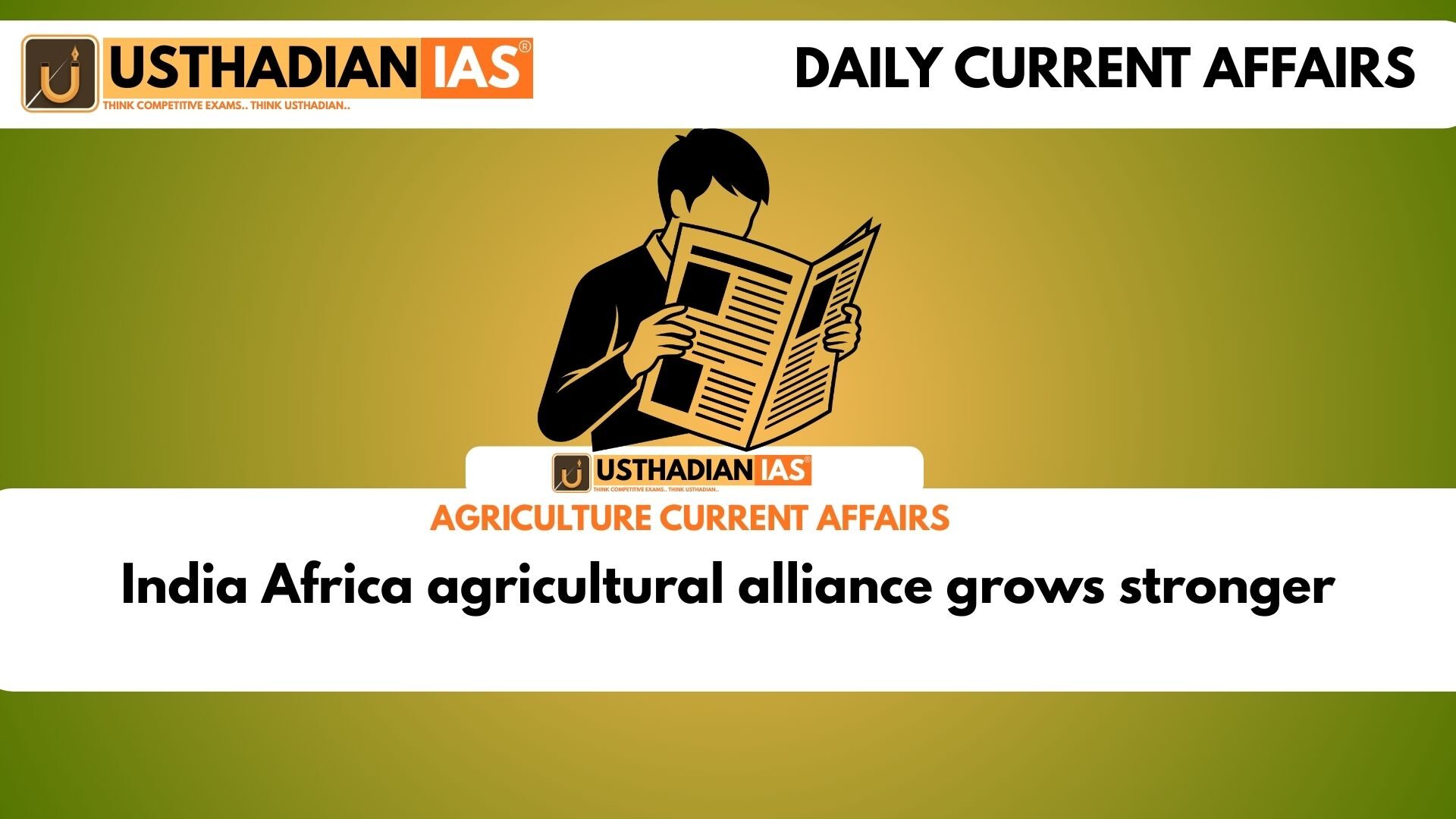Historic ties in agricultural cooperation
India Africa agricultural alliance grows stronger: India and Africa share a long-standing relationship in agriculture development. Over the decades, India has extended soft loans, technical assistance, and policy support to African nations. The focus is on improving crop productivity, capacity building, and ensuring food security through sustainable farming practices.
Static GK fact: India has signed over 180 bilateral agreements with African nations, including many focused on agriculture and infrastructure.
Shared challenges in agriculture
Both India and Africa suffer from climate change impacts, erratic weather patterns, and water scarcity. In Africa, agriculture employs over 60% of the population but contributes less than 20% to GDP. This mismatch highlights structural issues like poor infrastructure, lack of access to market data, and limited financial support for small farmers.
Post-harvest losses, due to lack of storage and transport facilities, also cripple profitability and food availability.
Rising food import dependency
Africa’s annual food import bill has crossed $50 billion, driven by domestic production shortfalls and global disruptions like COVID-19 and the Russia-Ukraine conflict. This over-dependence on imports exposes the continent to inflation and food insecurity.
Static GK fact: Africa accounts for 12% of global population but only 3% of global agricultural trade.
African-led initiatives for food transformation
The African Union, along with the African Development Bank, is leading key initiatives like:
- Feed Africa: Aims to make farming a profitable business.
- Comprehensive Africa Agriculture Development Programme (CAADP): Focuses on sustainable practices, research, and improving value chains.
These efforts aim to uplift rural incomes and enhance food self-reliance.
India’s investment and technology support
India is actively supporting Africa through:
- Technology transfer in areas like drip irrigation, hybrid seeds, and agri-machinery.
- Funding infrastructure like cold chains and storage facilities.
- Establishing agriculture training centres in nations like Angola and Zimbabwe.
Static GK Tip: India’s EXIM Bank has extended over $12 billion in Lines of Credit to African countries, much of it targeted at agriculture.
Role of Indian private sector
Companies like ETG and ZimGold have invested in food processing and agri-logistics. These ventures reduce dependency on imports and generate local employment. The private sector is also helping integrate African farmers into formal supply chains.
Grassroots empowerment and food aid
India extends humanitarian aid during food crises, including rice, wheat, and pulses. NGOs such as the Self-Employed Women’s Association (SEWA) are active in community-level training, especially for women farmers, in regions like Kenya and Ethiopia.
Way ahead for both regions
Africa’s food market is projected to reach $1 trillion by 2030. India can support Africa’s agricultural rise through its experience in smallholder integration, crop insurance, and digital agriculture platforms.
Strengthening public-private partnerships and increasing South-South cooperation will be key for a resilient, food-secure future.
Static Usthadian Current Affairs Table
India Africa agricultural alliance grows stronger:
| Topic | Detail |
| Annual African food imports | Approx. $50 billion |
| Main African agriculture initiative | Feed Africa |
| Key India-backed countries | Angola, Zimbabwe |
| India’s agricultural aid format | Soft loans, training, infrastructure |
| Major Indian companies in Africa | ETG, ZimGold |
| Women empowerment NGO | SEWA (Self-Employed Women’s Association) |
| Agriculture workforce in Africa | Over 60% of total labour |
| India’s financial support arm | EXIM Bank |
| Africa’s food market size by 2030 | Projected $1 trillion |
| Key challenges | Climate change, post-harvest loss, poor infrastructure |








